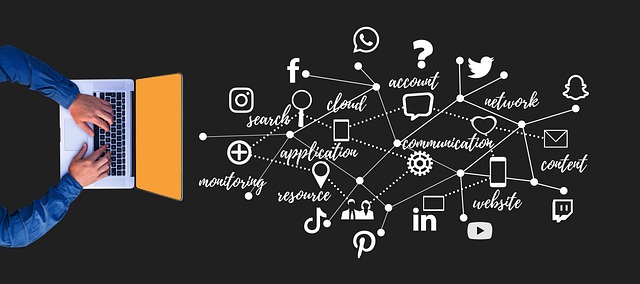AI wellness newsletters are transforming digital health coaching by offering highly personalized dietary recommendations based on an individual's unique health data, lifestyle, and preferences. Crafted for maximum engagement, these newsletters include tailored insights, recipes, workout routines, and motivation with interactive tools like meal planners and goal trackers. This level of personalization enhances user experience, increases adherence to diet plans, and contributes to improved health outcomes while leveraging advanced algorithms and machine learning.
Digital health coaches are transforming the way we approach dietary adjustments. With the integration of artificial intelligence (AI) and personalized wellness newsletters, these coaches offer tailored nutritional guidance, revolutionizing health management. This article explores how AI wellness newsletters enhance diet recommendations through content personalization. We delve into the benefits and challenges of AI-driven dietary adjustments, providing insights that foster informed decisions for optimal health.
- The Role of AI Wellness Newsletters in Personalizing Dietary Recommendations
- How Digital Health Coaches Enhance Nutritional Guidance with Content Personalization
- Benefits and Challenges of AI-Driven Dietary Adjustments for Optimal Health
The Role of AI Wellness Newsletters in Personalizing Dietary Recommendations

In the realm of digital health coaching, AI wellness newsletters have emerged as a powerful tool for personalizing dietary recommendations. These newsletters leverage advanced algorithms to analyze an individual’s health data, lifestyle, and preferences, enabling tailored advice that goes beyond generic diet plans. By incorporating machine learning capabilities, they can continuously adapt and refine suggestions based on user interactions and feedback, fostering a more engaging and effective weight management journey.
The content of AI wellness newsletters is meticulously crafted to offer customized insights, recipes, workout routines, and motivation. They often include interactive features, such as personalized meal planners and goal-tracking tools, enhancing user engagement. This level of personalization not only makes the coaching experience more enjoyable but also increases adherence to dietary adjustments, ultimately contributing to better health outcomes.
How Digital Health Coaches Enhance Nutritional Guidance with Content Personalization

Digital health coaches are transforming nutritional guidance by leveraging AI and content personalization. These platforms adapt to individual needs, offering tailored meal plans, recipes, and educational resources based on users’ unique dietary preferences, health goals, and lifestyle factors. Unlike generic advice, personalized wellness newsletters from digital coaches ensure that every suggestion resonates with the user’s specific circumstances.
The power of AI in this context lies in its ability to analyze vast amounts of data, including a person’s eating habits, fitness routines, and medical history, to create customized plans. This level of personalization not only makes dietary adjustments more achievable but also increases adherence and engagement. By catering to individual tastes, cultural backgrounds, and dietary restrictions, digital health coaches foster sustainable lifestyle changes, ultimately contributing to better health outcomes.
Benefits and Challenges of AI-Driven Dietary Adjustments for Optimal Health

AI-driven dietary adjustments are revolutionizing the way we approach health and wellness, offering numerous benefits for those seeking optimal nutrition. These intelligent systems can analyze vast amounts of data to create personalized meal plans tailored to an individual’s unique needs and preferences. By leveraging machine learning algorithms, AI wellness newsletters can continuously learn from user interactions, providing relevant content and recommendations that adapt over time. This level of personalization ensures individuals receive guidance that resonates with their lifestyle, dietary restrictions, and health goals, fostering better adherence and improved outcomes.
However, challenges exist when implementing AI-driven dietary solutions. Data privacy and security are paramount concerns, as these systems rely on sensitive health information. Ensuring the protection of user data against breaches is essential to maintaining trust. Additionally, while AI excels at personalization, it may struggle with nuanced human preferences and cultural dietary practices. Accurately interpreting and incorporating diverse cultural needs requires careful consideration and ongoing refinement, ensuring that technology serves as a tool to enhance rather than replace human expertise in nutrition.
Digital health coaches, powered by AI wellness newsletters, are transforming nutritional guidance through personalized content. By leveraging data and algorithms, these tools offer tailored dietary adjustments, enhancing overall health and well-being. While challenges exist, the benefits of AI-driven dietary recommendations are undeniable, promising a future where personalized nutrition is accessible to all.
